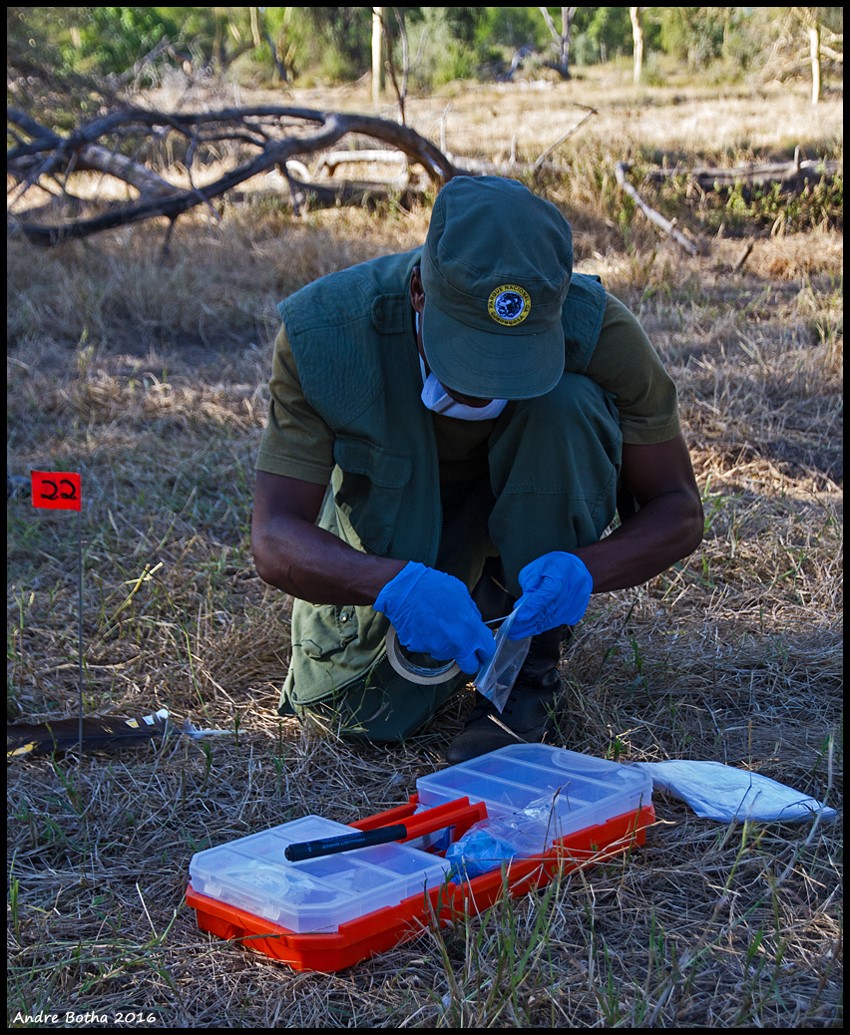Illegally killing elephants for ivory is still a lucrative trade. But the cost to vulnerable wildlife is also higher than many might think. To prevent detection, poachers are poisoning elephant carcasses to eliminate tell-tale vultures circling overhead.
Vulture populations across Africa have declined by more than 80% in just a few generations and four species are now critically endangered. Dr Graham Holloway and Dr Campbell Murn helped identify poisoning as a major cause of this decline. The findings compelled the team to develop practical ways to address the threat.
Data from the field show that 300 or more vultures can die every time an elephant is poached and its carcass is laced with poison. However, the team’s research showed how this damage can be reduced when park rangers are trained and equipped to deal with poisoning situations. Hundreds of vultures can be saved, and there is also an increased chance of bringing poachers to account.
On the ground and working with the Endangered Wildlife Trust of South Africa, the research led to the development of training workshops aimed at local communities, reaching over 1300 individuals across seven countries. The project also delivers special Poison Response Kits that trained park rangers use to neutralise poisoned carcasses and save other vulnerable wildlife.
The work has informed and influenced international agreements (including the global Convention on Migratory Species), multi-national organisations such as African Parks, and the governments of several countries.
Partners: Hawk Conservancy Trust, Endangered Wildlife Trust
Judges’ comments: “The researchers tenacious approach to gathering evidence has led to a direct practical benefit on conservation efforts.”
Shortlisted for the University Research Engagement and Impact Awards 2018
First published: June 2018

